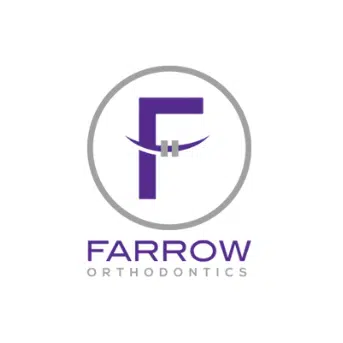This time, we’re looking at 10 easy tips for great oral care in the Farrow Orthodontics blog. Before beginning orthodontic treatment, teeth and gums must be healthy and strong. Then, maintaining oral care during treatment helps you have a better experience and get results faster.
10 Easy Tips for Great Oral Care
Keeping your teeth healthy requires a little effort every day, but it doesn’t take much. The main thing is to keep at it, sticking to an oral hygiene routine. If you find yourself forgetting to brush, there are ways to keep it interesting.
Oral Care Tip #1: Find a Favorite Electronic Toothbrush
An ADA-approved soft toothbrush is all you need for brushing twice daily for two minutes. However, there are many electronic toothbrushes now that can help keep you interested in brushing.
Today, electronic toothbrushes feature built-in timers and settings to change the pulse of the vibrating bristles. So, you can change it up and make brushing more engaging. See more about the pros and cons of electronic toothbrushes here.
Tip #2: Find a Favorite Manual Toothbrush
If you prefer a manual toothbrush, chose soft bristles since that protects your tooth enamel. Unlike electronic toothbrushes, manual ones come in all colors and feature popular movie characters. So, pick something you really love to help make brushing more fun.
Oral Care Tip #3: Brush Every Day Before Bed
As noted, it’s best to brush twice daily for two minutes. For your second brushing, it’s a great idea to brush right before you go to bed. That way, you can remove the plaque and bacteria that have been slowly building up during the day.
Tip #4: Brush Your Tongue
Do you brush your tongue when you brush your teeth? Like teeth, your tongue can be coated with plaque and bacteria. So, you may want to take a moment during brushing to brush your tongue gently. A soft toothbrush will work nicely, and the ADA doesn’t suggest devices like tongue scrapers unless you just like how it feels.
For more tips on the proper way to brush, see the ADA’s simple recommendations here.
Tip #5: Change Your Toothbrush Regularly
Did you know it’s best to get a new manual toothbrush every 3 to 4 months? Even if your brush looks ok, the surface of the bristles wears down, becoming less effective at removing plaque. So, the CDC recommends changing to a new brush as part of maintaining oral care.
For electronic toothbrushes, the rotating heads wear more quickly. So, it’s best to replace those smaller brush heads every 12 weeks. See more in our recent blog.
Tip #6: Find Your Favorite Flosser
Flossing once a day helps remove the disease-causing plaque hiding between your teeth and under the gum line. So, it’s always going to be a top tip for great oral care.
Nevertheless, flossing can often seem like a real chore. However, finding the right tools may give you motivation and make it easier. Then, you can enjoy improved oral health.
For example, you may consider a handheld silicone flosser, which is reusable and easy to hold. Or, a disposable floss pick can help if you find it challenging to work with floss thread. These come with floss pre-loaded for your convenience.
Also, there are flavored flosses in bright colors to help improve your experience, although it costs much more than plain floss. If it can help you to floss more, it may be worth a try.
For some, it’s challenging to work with floss, so you might consider a water pick or water flosser. Dr. Anthony Farrow and the team will be happy to recommend products for flossers or toothbrushes.
Oral Care Tip #7: Mouthwash (After Age Six)
The American Dental Association recommends mouthwash after age six. Before this age, kids may inadvertently swallow it. However, supervised older kids and adults can benefit from mouthwash. For example, it protects you from cavities and helps remove food trapped between teeth.
Plus, nothing gives you that fresh breath feeling like a good mouthwash. For the best mouthwash, make sure it’s alcohol-free for kids, and once again, look for the ADA seal. Also, we’ll be happy to recommend a mouthwash.
Tip #8: Routine Dental and Orthodontist Visits
Each year, it’s recommended to see a general dentist every six months, twice annually. However, the number of visits is best determined by your dentist, depending on your unique needs. With routine check-ups and cleanings, you can maintain top oral health and address any issues.
The American Association of Orthodontists recommends kids see an orthodontist no later than age seven. However, if you notice any problems before age seven, contact your orthodontist. See more about early treatment here.
Notably, there is no age limit for orthodontic care. So, if you believe you may have a smile misalignment, such as an overbite, chewing difficulty, or jaw pain, contact your orthodontist. Today, treatments are advanced and affordable and can significantly improve one’s health and appearance. More about adult treatment here.
Tip #9: Drink Plenty of Water
By drinking plenty of water, you can help flush away food particles that feed harmful bacteria. So, if possible, choose a drink of water after meals. By drinking fluoridated water, you can protect your teeth from bacteria that damage tooth enamel.
If you are choosing bottled water, check the label to make sure it contains fluoride.
Tip #10: Limit Sugary Foods and Drinks
Most people love sugary sweets, but so do the bad bacteria in your mouth. So, limiting how many treats you eat and sugary drinks like soda helps you keep the bad bacteria at bay. If you have a dessert, it’s a good idea to rinse with plain water or brush if possible.
Instead of sugary processed foods, a healthy diet of leafy greens, fresh fruits, and crunchy veggies will help keep teeth healthy and strong. By eating calcium-rich foods like yogurt, you can help maintain strong teeth and bones. Plus, it contains probiotics that help fight bad breath.
If you’re wearing braces or Invisalign, it’s best to limit or avoid crunchy, chewy, sticky, or hard foods. See more about that here.
We hope these 10 easy tips for great oral care are helpful. As you can see, they’re easy but can really help you keep your teeth strong and healthy.
As always, we’re here to help if you have any questions.
Call us anytime at (215)247-9060 for our Mt. Airy Office.
Or, call us at (215) 569-9060 for our Center City Office.
Please follow us on Instagram and Facebook for the latest content and updates.
Dr. Farrow and our team at Farrow Orthodontics are experts in orthodontic care. We are here to answer any questions or concerns you may have in Philadelphia, PA, Center City, PA, Logan Square, PA, and Rittenhouse Square, PA.

